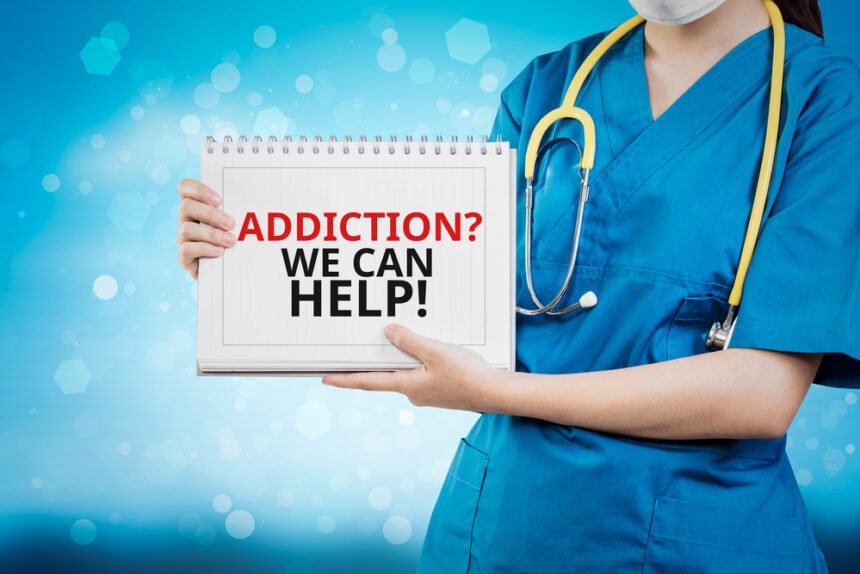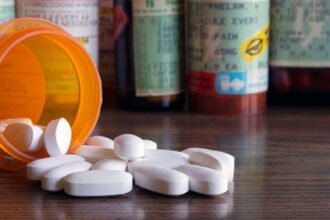We tend to think that drug abuse is a problem that affects a tiny sliver of the population. We envision homeless people or violent criminals when we think of addicts. However, the National Institute of Health reports that around 10% of all adults have a drug use problem at some point in their lives. Research has also shown that one in eight adults have a problem with alcoholism.
- Understanding the Impact of Addiction – Physical, Mental, and Emotional
- Identifying Signs of Addiction in Yourself or Someone Else
- The Risks of Prolonged Substance Use and Abuse
- Exploring Treatment Options for Overcoming Addiction
- Building a Support System to Help You Stay Sober
- Learning the Necessary Coping Skills to Manage Triggers and Cravings
- In Conclusion
Addiction is a grave, complex issue that carries profound implications. The costs associated with this horrible affliction are far-reaching and profoundly devastating – often leading to personal, familial, and financial ruin. But while societal awareness of addiction continues to grow in the wake of countless stories of disaster, there is a bigger conversation that we need to have about it. We must consider the specific dangers of substance abuse that predispose some individuals to the risk of addiction. We also need to understand the risks people face when going down this dangerous path to ensure they can receive proper treatment for their addiction.
In this article, we will examine the many underlying risks very closely to better understand current realities regarding substance abuse disorder and apply preventative measures when possible.
Understanding the Impact of Addiction – Physical, Mental, and Emotional
Addiction is a complex issue that impacts more than just the person experiencing it. While it can undoubtedly have physical effects on the body, its mental and emotional toll can be just as intense. Addiction can lead to anxiety, depression, and other mental health concerns. It can also strain relationships with loved ones, causing emotional pain and trauma.
Understanding the full impact of addiction is crucial for those struggling or trying to help someone they care about. Seeking help and support from professionals can make a significant difference in managing addiction’s physical, mental, and emotional consequences. Check out thedawnrehab.com for more info.
Identifying Signs of Addiction in Yourself or Someone Else
The signs of addiction can vary from person to person. Still, there are common traits – such as an inability to quit using a substance despite attempts to do so, changes in behavior and mood attributed to drug use or alcohol consumption, or physical issues related to intoxication.
If you’re worried that someone you care about may be struggling with an addiction, it is crucial to take steps to address the situation. If possible, suggest professional help for them and consult a physician for advice on any necessary medical treatment.
In the case of yourself or someone else suffering from substance abuse disorder, recognizing the risks associated with addiction can be difficult. Still, making informed decisions on the right course of action toward a healthier future is essential.
The Risks of Prolonged Substance Use and Abuse
Prolonged and regular substance use can harm physical, mental, and emotional health. In addition to the tolerance people build up concerning the substance, addiction is associated with many other risks – including an increased likelihood of developing certain medical conditions such as liver cirrhosis or various cancers.
In cases where substances are being abused, it is not uncommon for individuals to suffer withdrawal symptoms when attempting to quit using them. These symptoms can range from mild discomfort to significant pain and medical complications.
Furthermore, there are social implications related to prolonged drug use – disrupted relationships with family and friends, financial distress due to spending money on substances instead of paying bills or managing debts, legal trouble stemming from criminal behavior, or neglected responsibilities.
Exploring Treatment Options for Overcoming Addiction
The good news is that addiction can be treated, and there are many different paths to recovery. Depending on the individual’s needs and preferences, treatment options may include inpatient or outpatient programs, group therapy, cognitive-behavioral therapy (CBT), dialectical behavior therapy (DBT), prescription medications such as buprenorphine or naltrexone, 12-step programs like Alcoholics Anonymous or Narcotics Anonymous and more.
It is essential to understand that overcoming addiction requires much effort and dedication. However, with the right help and support from professionals and loved ones, it is possible to address substance abuse disorder’s physical, mental, and emotional effects to live a healthier life.
Building a Support System to Help You Stay Sober
It’s important to remember that recovering from an addiction is a lifelong journey, and having a strong, supportive system in place can make all the difference. It could include family and friends, counselors or therapists specializing in addiction recovery, 12-step programs such as Alcoholics Anonymous or Narcotics Anonymous, or online support groups for those unable to attend face-to-face meetings. The family will need to play an important role in helping the addict get treatment.
Having positive relationships with people who understand and empathize with your struggles can be incredibly helpful when trying to stay sober. It can also provide you with the necessary accountability to stay on track with any treatment plan your doctor prescribes. Research shows that having a strong social network of peers helps individuals struggling with substance abuse remain abstinent, which is why building a support system is an essential part of recovery.
Learning the Necessary Coping Skills to Manage Triggers and Cravings
Addiction recovery is not just about abstaining from substances; it’s also about learning the necessary coping skills to manage triggers and cravings. Triggers are situations or cues that can lead to a craving for drugs or alcohol, such as being in certain places with people who use them.
To combat these triggers, it is crucial to have healthy coping strategies in place, such as exercising, breathing techniques, mindfulness meditation, or journaling. It is also beneficial to have an open dialogue with loved ones and psychiatrists/therapists so that they can help you identify any underlying issues or emotions that might be causing the cravings.
By developing effective coping strategies and talking through complicated feelings, individuals struggling with addiction can learn to manage their cravings and triggers to remain sober.
In Conclusion
Addiction is a complex disorder that requires comprehensive treatment and ongoing support. It is essential to have a plan in place to address the physical, mental, and emotional aspects of addiction recovery. It could include exploring treatment options, building a strong support system, and learning coping skills to manage cravings and triggers. With the right help and dedication, overcoming addiction and leading a healthier life is possible.










